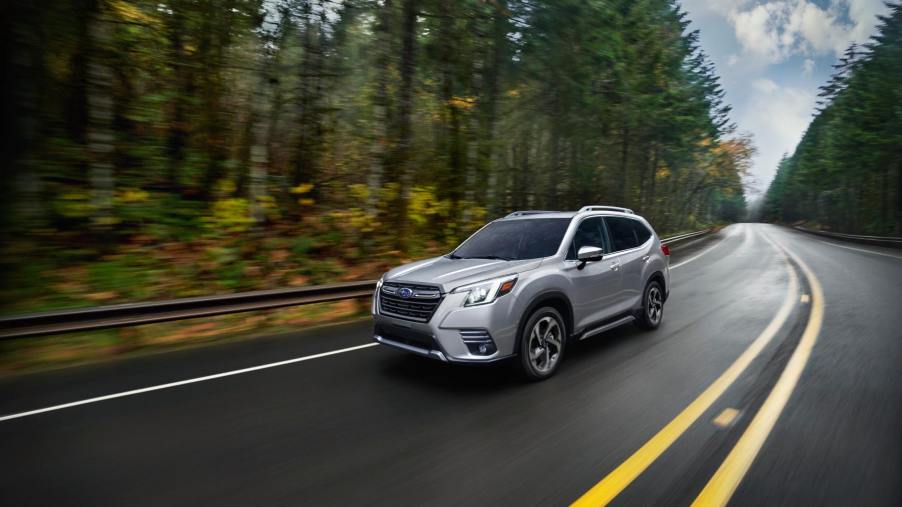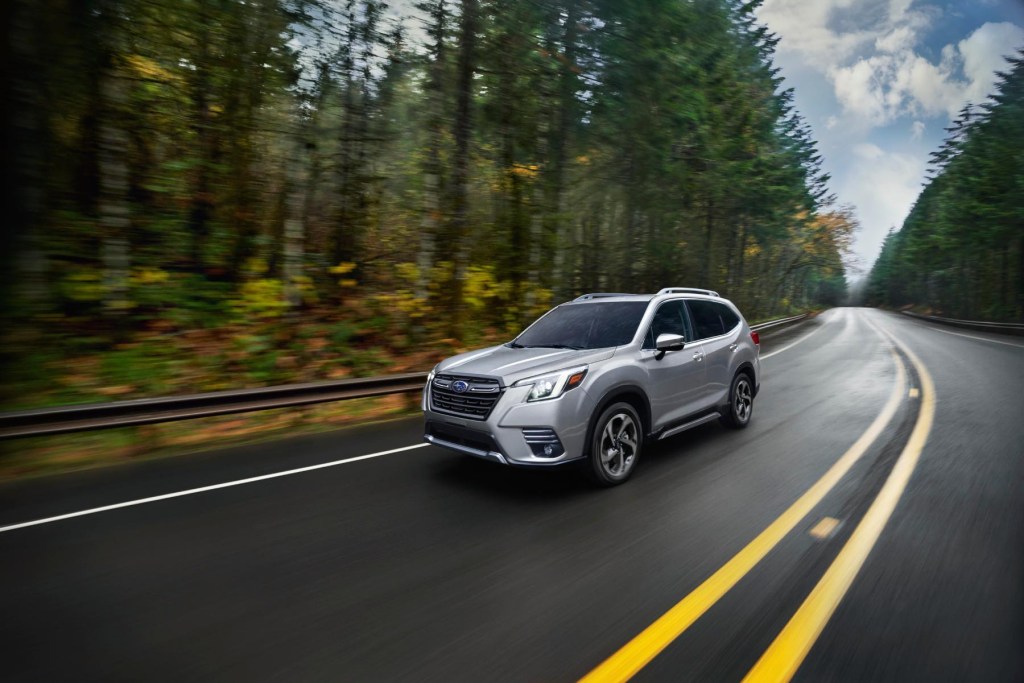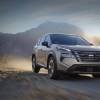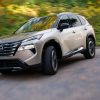
This Single Weakness Holds the Subaru Forester Back
The Subaru Forester has gained popularity over the years with its reputation for being more rugged than the typical compact crossover. Yet, even with its numerous strengths, one weakness keeps the Subaru Forester from meeting its full potential: it needs a hybrid powertrain.
What is the main weakness of the Subaru Forester?

The Subaru Forester’s main weakness compared to other compact SUVs is its lack of a hybrid powertrain option.
While the rest of the compact SUV segment leaps ahead with efficient hybrid engine technology, the Forester has stuck to the same basic gas-only powertrain it has had for a decade. While the Forester has long had a winning formula that’s built up a loyal customer base, it might be time for Subaru to consider modernizing its performance.
What engine does the Subaru Forester have?
Currently, the Subaru Forester is only available with a 2.5-liter boxer engine.
This flat-four powerplant ought to be familiar to most Subaru drivers, as its had use in the brand’s SUVs for years. According to Edmunds, the 2.5-liter Boxer engine makes 182 horsepower and 176 pound-feet of torque. It’s enough to help the Forester scoot in traffic, but few would call it quick.
Edmunds also reports that the Forester is rated for about 29 mpg combined. Though not terrible by SUV standards, it’s far short of others in the segment that push 40 mpg with help from hybrid technology.
Most new compact SUVs have hybrid powertrain options
The absence of a hybrid option for the Subaru Forester is all the more conspicuous because of how common the technology has become for other compact crossovers. Here’s a list of new compact SUV models that have hybrid versions:
- Toyota RAV4 Hybrid
- Ford Escape Hybrid
- Kia Sportage Hybrid
- Hyundai Tucson Hybrid
- Honda CR-V Hybrid
What are the benefits of a hybrid SUV?
A hybrid system for the Forester would likely offer multiple advantages, from superior efficiency to more power output.
The most prominent benefit of hybrid technology is its potential for efficiency gains. Using electric batteries and motors lessens the burden on the internal combustion portion of the powertrain significantly. The result for most hybrid SUVs is a significant fuel economy improvement – especially with city driving.
Compact Hybrid crossovers are also benefiting from increased power. Models like the Toyota RAV4 Hybrid have more horsepower and torque than their non-hybrid counterparts, helping them deliver quicker and more confident performance.
Subaru is behind the pack in hybrid technology
While most of its peers have leaned full tilt into hybrid SUVs, Subaru has been a bit more hesitant. Sure, Subaru made the Crosstrek Hybrid – but it was never a high-volume seller. Even its first EV, the Solterra, is a joint venture with Toyota that’s had trouble launching.
Subaru last redesigned the Forester in 2019. It’s due for another update soon – Subaru would be wise to consider a hybrid option for its new compact SUV.


